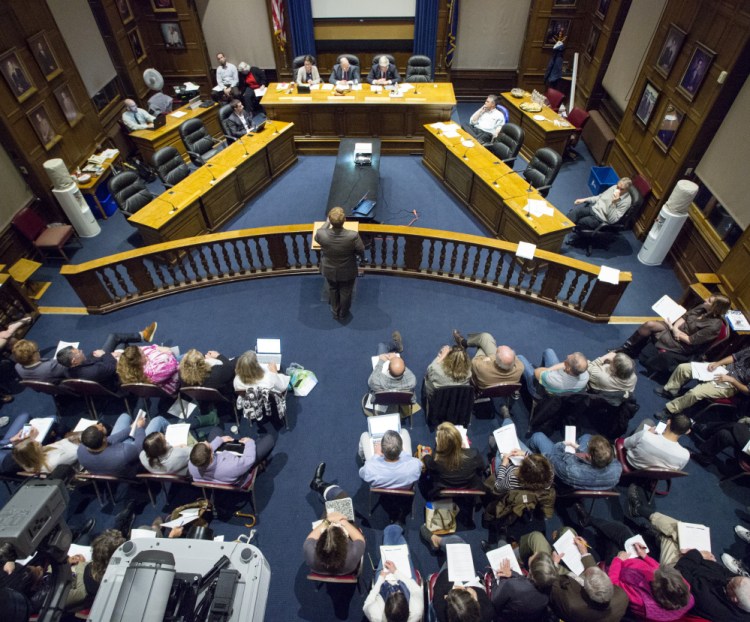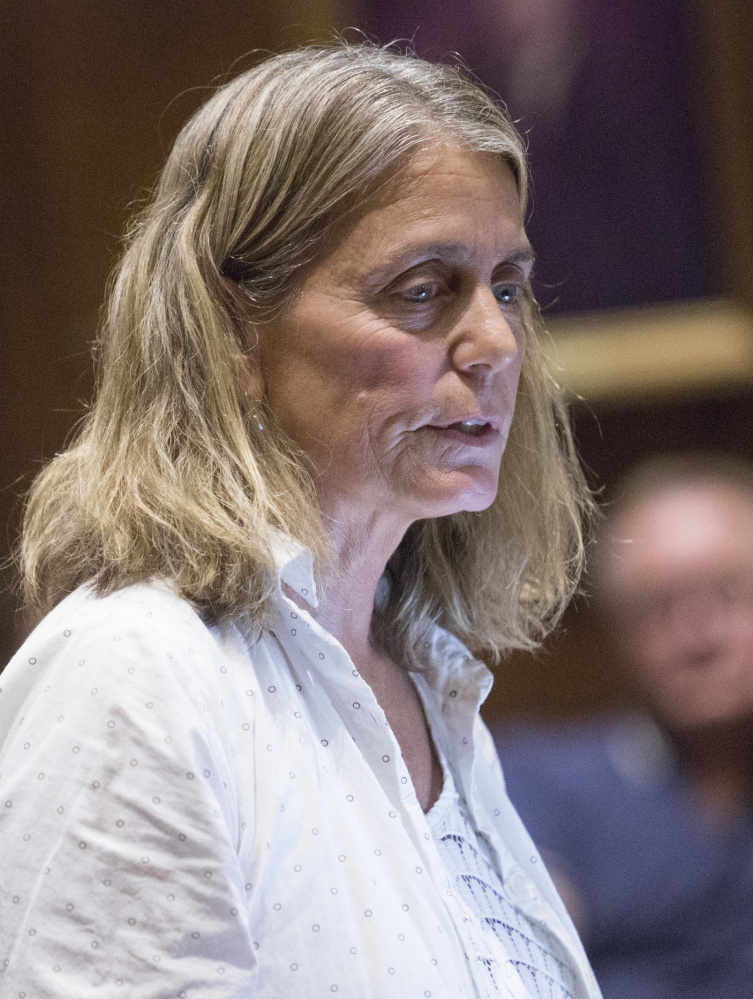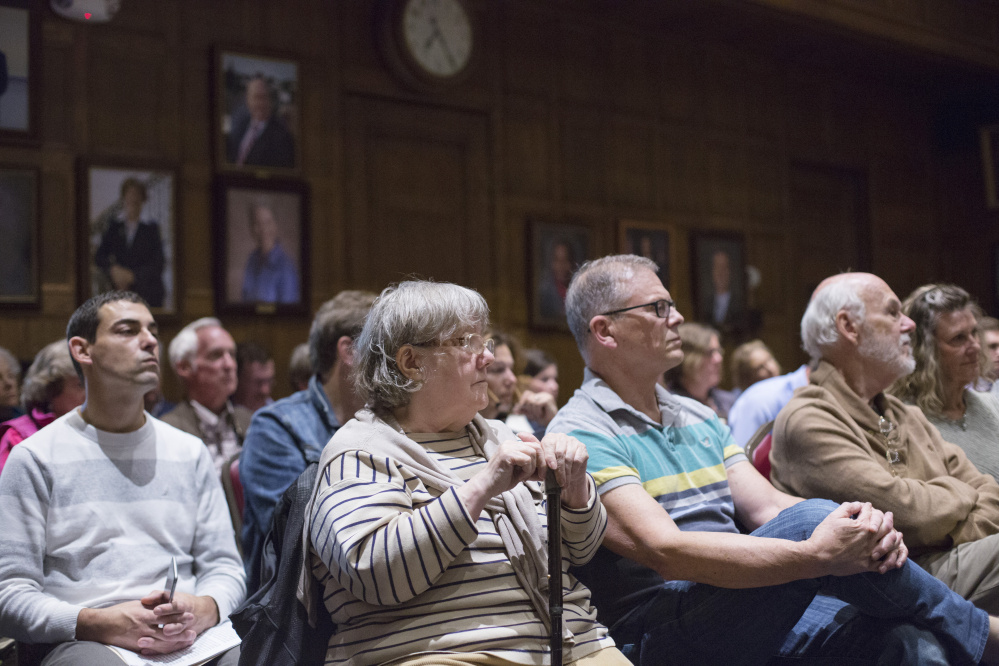Members of the Portland Housing Committee heard two hours of testimony Thursday from residents and property owners on proposed regulations for short-term rentals like those offered through online home sharing sites such as Airbnb.
Most of the more than two dozen people at the hearing spoke in favor of short-term rentals. While most agreed with some form of regulation, the proposed rules didn’t sit well with everyone.
The rules proposed by the city’s planning office would limit short-term rentals to the host’s primary residence. The proposed regulations also include annual registration with the city, safety code requirements, a six-guest limit, and fines of up to $10,000 for operating an unauthorized short-term rental.
Although acknowledging that guests of short-term rentals boost the economy and help residents pay their bills, city officials argue that those rentals are taking up living space that would otherwise go to full-time residents. According to Portland Housing Planner Tyler Norod, there are 440-620 Airbnb listings in Portland and 150 units could be opened to full-time residents if regulations were in place. Those vacancies, combined with apartment construction, could partially relieve the city’s rental housing shortage, Norod told the committee Thursday. City officials also say short-term rentals can lead to loud parties, disruption and a loss of neighborhood character.
But multiple people spoke out Thursday to defend short-term rentals in the city. Most described how they were able to pay their mortgage and bills by renting out their homes on the weekends or for a few months in the summer. Others said sites like Airbnb helped them afford improvements to the buildings they owned. Hosts said that their guests like staying in a neighborhood, and spend money on local restaurants and shops, instead of at a hotel downtown.
“People who stay with us don’t want to stay in a room, they want to immerse themselves in a neighborhood,” said Colleen Bedard, who owns two buildings.
A number of property owners said they tried short-term rentals after dealing with the stress and aggravation of removing a bad long-term tenant. Lars Whalen, who owns a building on Noyes Street, said he moved to short-term rentals after evicting tenants for hoarding and growing marijuana. In comparison, short-term guests are quiet and respectful.
“I would not be going back to long-term rentals, that was such a nightmare for me,” Whalen said.
Others contested the idea that the units they rented would automatically become market-rate apartments. Some owners said they would aim to sell their units as condos, instead of renting them out.
Only a few people offered specific criticism of the proposed rules for short-term rentals. Some owners said the committee should expand the primary residence rule to include owner-occupied buildings, so a property-owner could rent out a unit in the building they lived in, instead of their primary residence.
Scott Lindsay, a commercial real estate developer, said the proposed rules seemed like they were designed for residential areas and didn’t take into account other parts of the city, especially tourist centers like the Old Port.
“It can’t just be a blanket restriction,” he said.
But some residents told the committee horror stories about rogue short-term rentals and urged the city to enforce zoning rules. Most short-term rentals in Portland violate the city’s zoning, but in August City Manager Jon Jennings said Portland would not prosecute violations until short-term rentals rules were in place.
Robyn Brown was one of several Bradley Street residents who complained about a house that was being advertised for parties on Airbnb. The homeowner is never there and since they began renting the house this summer, it has been a revolving door of loud, drunken parties, Brown said. After she told one group to be quiet, the homeowner threatened her with legal action if she disturbed the guests again, Brown told the committee.
“This has been a serious negative impact on my life,” she said. “I have an illegal hotel open next door to me.”
Celeste Bard said the city was allowing businesses to operate in the wrong zones and urged it to enforce its rules.
“This is illegal, it should not be allowed in the city,” Bard said.
“If you need more persuading from the neighbors, we will organize.”
Send questions/comments to the editors.





